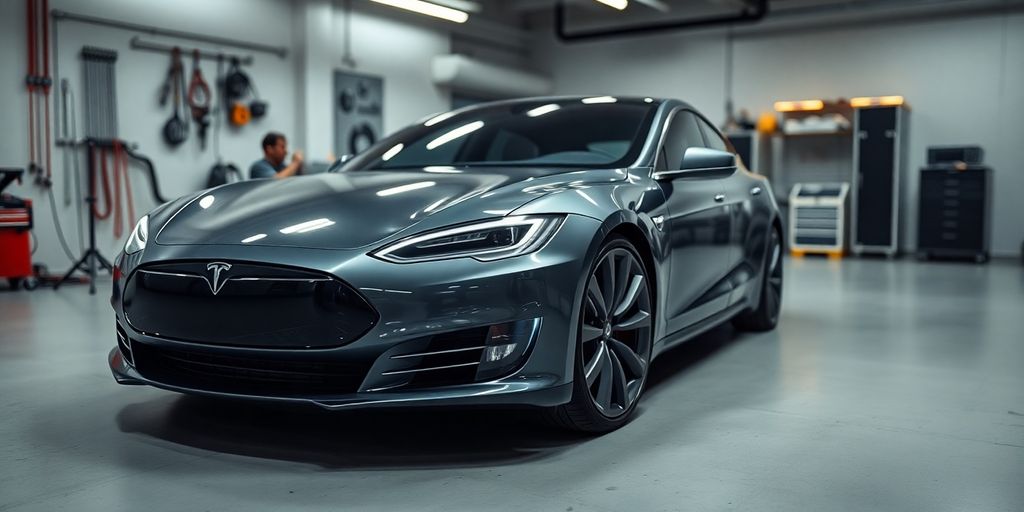Tesla Blog
The True Cost of Tesla Maintenance: What You Need to Know

If you’re considering a Tesla or already own one, understanding the maintenance costs and requirements is essential. In this post, we’ll break down everything from routine maintenance to warranty details, and how Tesla ownership compares to traditional gas-powered vehicles.
Key Takeaways
- Tesla maintenance is generally cheaper than gas cars.
- Routine maintenance includes cabin filters, tire rotations, and brake checks.
- Tesla’s warranty covers significant components for up to 8 years.
- Mobile service options make maintenance convenient.
Tesla Maintenance Overview
When it comes to maintenance, Teslas have a significant advantage over traditional gas-powered cars. With fewer moving parts and no fluids to leak, the overall maintenance costs are lower. Here’s a quick comparison:
| Maintenance Aspect | Gas-Powered Cars | Tesla |
|---|---|---|
| Moving Parts | Many | Fewer |
| Fluids | Required (oil, transmission, etc.) | None |
| Routine Maintenance Costs | Higher (filters, oil changes, etc.) | Lower (limited to a few items) |
Routine Maintenance Tasks
Tesla recommends a few key maintenance tasks:
- Cabin Air Filter: Replace every 2 years for Model 3 and Model Y, and every 3 years for Model S and Model X. Upgrading to HEPA filters is also an option.
- Tire Rotation and Alignment: Rotate tires every 6,250 miles or when tread depth difference is 2/32 inches or greater. Note that Tesla tires may wear out faster due to the vehicle’s weight.
- Brake Fluid Test: Check for contamination every 2 years and replace as needed. Thanks to regenerative braking, Tesla brakes can last much longer than those in gas cars.
- A/C Desiccant Bag: Replace every 6 years for Model 3, 4 years for Model Y, and 3 years for Model S and X.
- Mobile Service: Tesla offers mobile service for many maintenance tasks, allowing you to have work done at home or work without the hassle of visiting a service center.
Cost of Maintenance
On average, Tesla owners spend about $1,490 every 5 years on maintenance, which breaks down to less than $300 per year. This is significantly lower than what many gas car owners face. Here’s a quick look at the costs:
- Cabin Filter Replacement: ~$50
- Tire Rotation: ~$100
- Brake Fluid Test: ~$30
- A/C Desiccant Replacement: ~$100
Warranty Information
Every Tesla comes with a basic limited warranty:
- 4 years or 50,000 miles for the vehicle.
- 8 years or 150,000 miles for the battery and drive unit, with a minimum of 70% battery capacity retention.
This warranty is a significant advantage, especially considering that Tesla batteries can last between 300,000 to 500,000 miles. In comparison, most gas cars average around 200,000 miles.
Battery Replacement Costs
If you ever need to replace your Tesla battery, expect to pay around $13,500 for the battery itself, plus about $2,300 for labor. This brings the total to approximately $15,800, which can be more economical than buying a new car.
Recurrent Battery Reports
To help you keep track of your battery’s health, consider using Recurrent. They provide free monthly battery performance reports, which can help you understand your battery’s current state and expected range over time. This is especially useful for potential buyers of used EVs.
Tesla Mobile Service
One of the best features of owning a Tesla is the mobile service option. Instead of going to a dealership, Tesla technicians can come to you. You can schedule an appointment through the Tesla app, and they’ll handle most issues right at your location. This service is free and available across the U.S.
Conclusion
In summary, owning a Tesla can be less expensive and more convenient than traditional gas-powered vehicles. With minimal maintenance requirements, a solid warranty, and the option for mobile service, it’s clear why many people are making the switch to electric. If you’re considering a Tesla, hopefully, this information helps you make an informed decision! Let me know your thoughts in the comments below!
